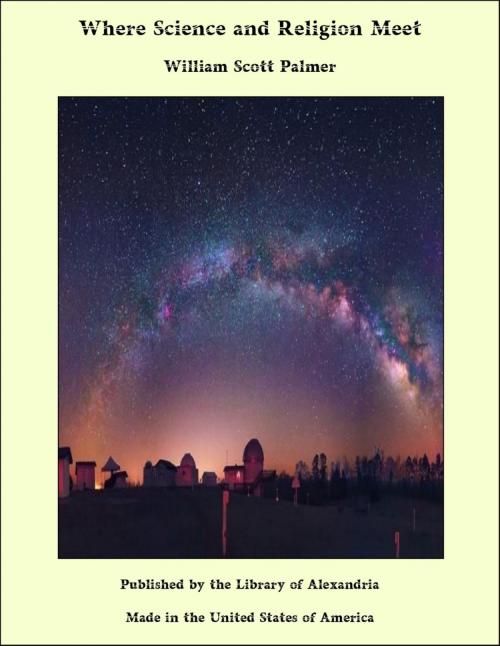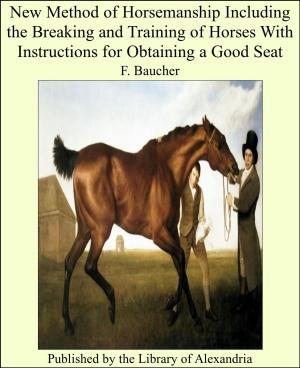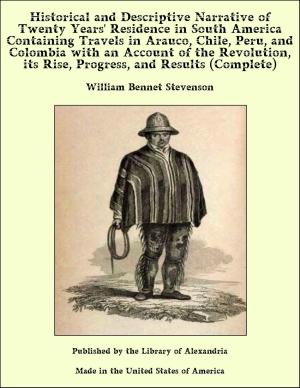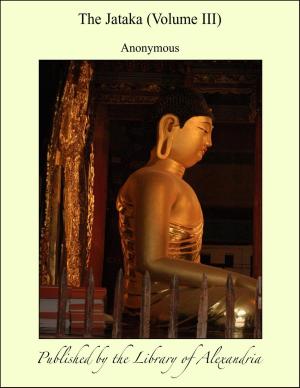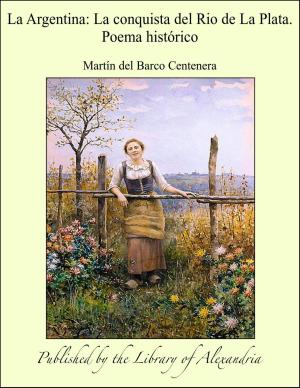Where Science and Religion Meet
Nonfiction, Religion & Spirituality, New Age, History, Fiction & Literature| Author: | William Scott Palmer | ISBN: | 9781465619570 |
| Publisher: | Library of Alexandria | Publication: | March 8, 2015 |
| Imprint: | Language: | English |
| Author: | William Scott Palmer |
| ISBN: | 9781465619570 |
| Publisher: | Library of Alexandria |
| Publication: | March 8, 2015 |
| Imprint: | |
| Language: | English |
Deep in every one of us there is a passion of desire to understand, just as there is of desire to enjoy and of desire to be somehow or other 'in the right.' I say deep in us, because we are in the habit either of burying these desires beneath a pretence of satisfying them or else of diverting our attention from them and thus letting them sink out of sight. So we live our life in the pursuit of other ends than those likely to be reached through understanding and rapture and righteousness. We falsify ourselves and our desires; yet unless we ruin the life within us they persist, waiting their hour. There are moments when it becomes almost impossible for any man who has seen something of the marvel of every-day affairs to believe that he might spend time in vain if he were to try to convince his next-door neighbour that there was anything hard to understand about the crooking of a finger. Yet that is his experience when he tries. Just because every man who has a healthy finger in a healthy body and a healthy mind can and does crook it, there is nothing to wonder at. The whole affair is plain; it is familiar, happens every day. Familiarity lulls to sleep both the desire for understanding, and the sense of not understanding. Consequently there is little that should provoke surprise on our part in the fact that not one man in (say) ten thousand is consciously puzzled by any of the deeper problems of life, not one in (say) a hundred thousand has his imagination either stirred or stunned by the green blades of the corn, the leaves of the tree, the grass in his fields or the sheep and cows that are eating it. There is nothing new about all this, nothing strange; it is familiar—therefore it is understood or there is nothing that calls for understanding. Yet in these green blades and leaves is the junction-point between the living and the not-living, between the plant and animal on the one hand and what we call 'inert matter' on the other, between the radiant energy of the sun and ourselves. And we do not understand, nobody understands, how that junction-point works. It is called chlorophyll; it is found in little living bodies called chloroplasts; and it is wonderful 'beyond all whooping'. Yet we do not even whoop. We do not get even thus far. We are not surprised, we are not enraptured. The thing is at once both too familiar and too obscure for us.
Deep in every one of us there is a passion of desire to understand, just as there is of desire to enjoy and of desire to be somehow or other 'in the right.' I say deep in us, because we are in the habit either of burying these desires beneath a pretence of satisfying them or else of diverting our attention from them and thus letting them sink out of sight. So we live our life in the pursuit of other ends than those likely to be reached through understanding and rapture and righteousness. We falsify ourselves and our desires; yet unless we ruin the life within us they persist, waiting their hour. There are moments when it becomes almost impossible for any man who has seen something of the marvel of every-day affairs to believe that he might spend time in vain if he were to try to convince his next-door neighbour that there was anything hard to understand about the crooking of a finger. Yet that is his experience when he tries. Just because every man who has a healthy finger in a healthy body and a healthy mind can and does crook it, there is nothing to wonder at. The whole affair is plain; it is familiar, happens every day. Familiarity lulls to sleep both the desire for understanding, and the sense of not understanding. Consequently there is little that should provoke surprise on our part in the fact that not one man in (say) ten thousand is consciously puzzled by any of the deeper problems of life, not one in (say) a hundred thousand has his imagination either stirred or stunned by the green blades of the corn, the leaves of the tree, the grass in his fields or the sheep and cows that are eating it. There is nothing new about all this, nothing strange; it is familiar—therefore it is understood or there is nothing that calls for understanding. Yet in these green blades and leaves is the junction-point between the living and the not-living, between the plant and animal on the one hand and what we call 'inert matter' on the other, between the radiant energy of the sun and ourselves. And we do not understand, nobody understands, how that junction-point works. It is called chlorophyll; it is found in little living bodies called chloroplasts; and it is wonderful 'beyond all whooping'. Yet we do not even whoop. We do not get even thus far. We are not surprised, we are not enraptured. The thing is at once both too familiar and too obscure for us.
